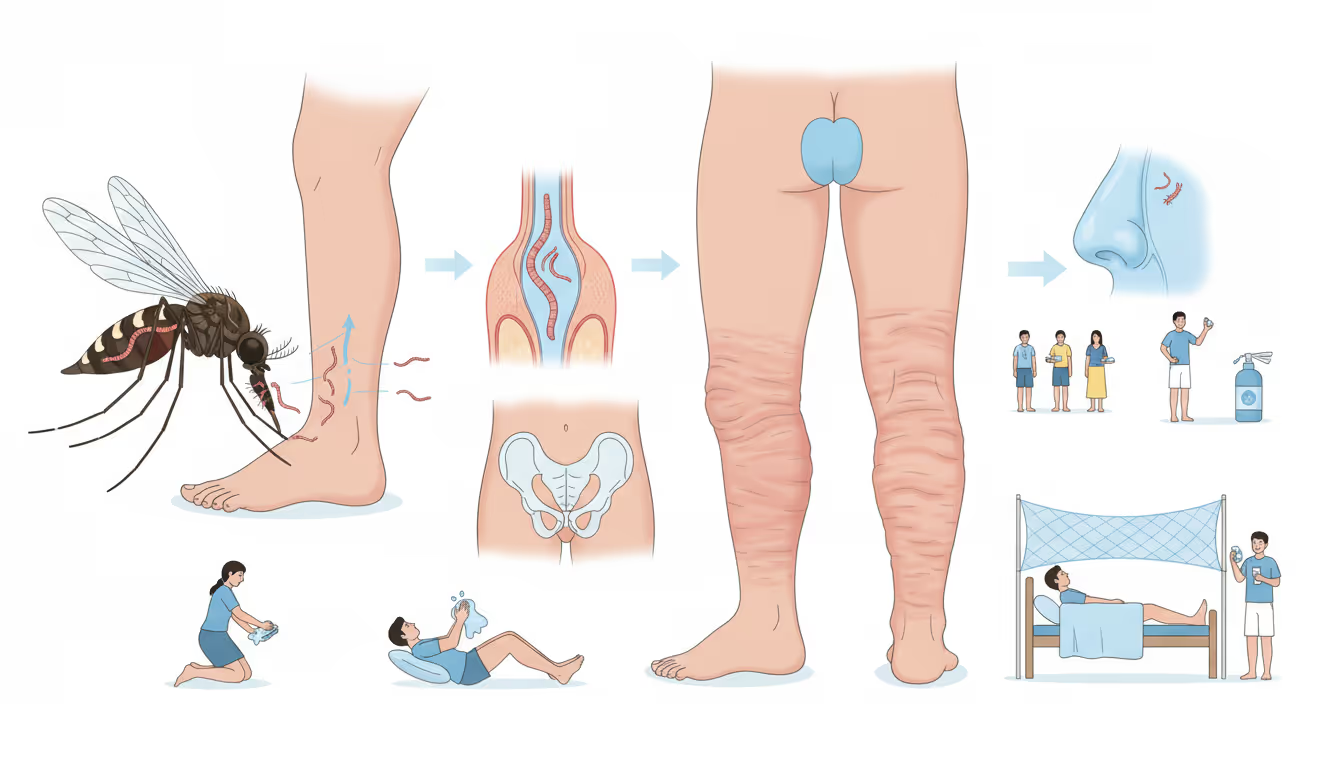
Lymphatic filariasis is an illness caused by the African eye worm, a tiny, thread-like parasite. These adult worms can only survive in the human lymphatic system. Over 120 million people in tropical regions of Asia, Africa, the Western Pacific, and parts of Central and South America are affected by this disease, which is transmitted through mosquito bites. When a mosquito bites someone infected with lymphatic filariasis, microscopic worms in the person's bloodstream enter and infect the mosquito. If this mosquito bites another person, the disease can be passed on. The tiny worms enter through the skin and travel to the lymph vessels, where they mature into adults, living for approximately seven years. These adults reproduce, releasing millions of microscopic worms into the bloodstream. Thus, when a mosquito bites an infected person, it can spread the disease to others.Contracting lymphatic filariasis typically requires numerous mosquito bites over several months or years. Those residing in or visiting tropical or subtropical areas where the disease is prevalent are at the highest risk, while short-term tourists face minimal risk. The infection is detectable through a blood test. Initially, most individuals are unaware they have lymphatic filariasis, as symptoms often appear only after the adult worms die. While the disease is generally not life-threatening, it can cause irreversible damage to the lymphatic system and kidneys. Impaired lymphatic function leads to fluid accumulation, causing swelling in the arms, breasts, legs, and, in men, the genital region, known as lymphedema. This swelling can cause limbs or genital areas to expand significantly. Additionally, the reduced lymphatic function makes it harder for the body to combat infections, leading to more frequent bacterial infections in the skin and lymphatic system. This results in skin hardening and thickening, a condition known as elephantiasis.Lymphatic filariasis is a major cause of long-term disability worldwide, causing pain, disfigurement, and sexual dysfunction. Affected individuals often face social stigma, with many women never marrying or being rejected by partners and families. The disability also hinders their ability to work, impacting both their families and communities. Poor sanitation and rapid population growth in tropical and subtropical regions have created environments conducive to mosquito breeding, increasing infection rates.Preventing the disease involves administering medication to entire communities to eliminate the microscopic worms and controlling mosquito populations. Preventative measures include avoiding mosquito bites, especially between dusk and dawn, as well as sleeping under mosquito nets and using repellents. Annually taking medication to kill the circulating worms can help, although it may not eliminate all adult worms. Treatment for those with adult worms includes yearly medication to prevent transmission, even if it doesn't kill the adult worms. Swelling in limbs or genital areas may persist even after the worms die. To manage this swelling:- Wash the affected area daily with soap and water.- Apply antibacterial cream to wounds to prevent infections and worsening swelling.- Elevate and exercise the swollen limb to improve fluid movement and lymphatic circulation.




